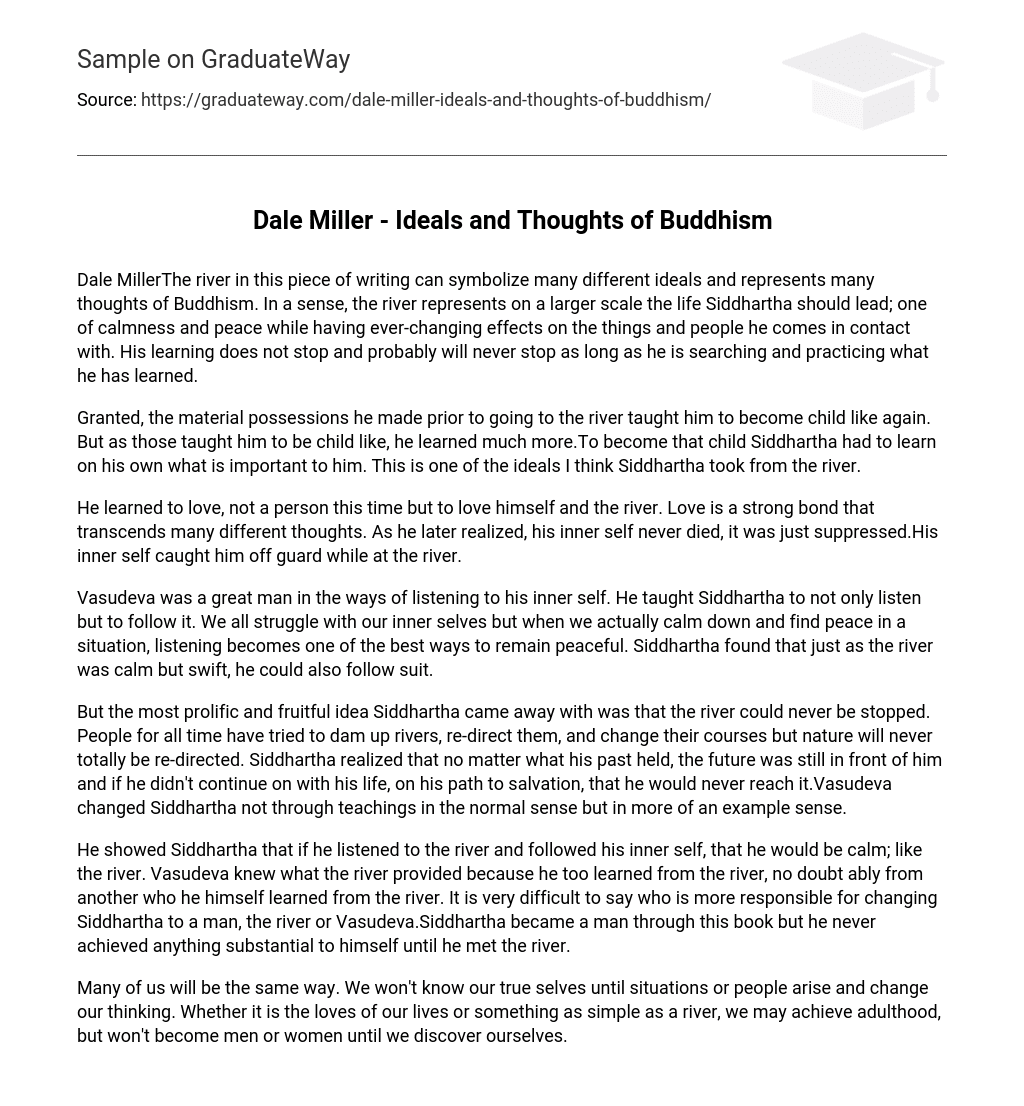Dale MillerThe river in this piece of writing can symbolize many different ideals and represents many thoughts of Buddhism. In a sense, the river represents on a larger scale the life Siddhartha should lead; one of calmness and peace while having ever-changing effects on the things and people he comes in contact with. His learning does not stop and probably will never stop as long as he is searching and practicing what he has learned.
Granted, the material possessions he made prior to going to the river taught him to become child like again. But as those taught him to be child like, he learned much more.To become that child Siddhartha had to learn on his own what is important to him. This is one of the ideals I think Siddhartha took from the river.
He learned to love, not a person this time but to love himself and the river. Love is a strong bond that transcends many different thoughts. As he later realized, his inner self never died, it was just suppressed.His inner self caught him off guard while at the river.
Vasudeva was a great man in the ways of listening to his inner self. He taught Siddhartha to not only listen but to follow it. We all struggle with our inner selves but when we actually calm down and find peace in a situation, listening becomes one of the best ways to remain peaceful. Siddhartha found that just as the river was calm but swift, he could also follow suit.
But the most prolific and fruitful idea Siddhartha came away with was that the river could never be stopped. People for all time have tried to dam up rivers, re-direct them, and change their courses but nature will never totally be re-directed. Siddhartha realized that no matter what his past held, the future was still in front of him and if he didn’t continue on with his life, on his path to salvation, that he would never reach it.Vasudeva changed Siddhartha not through teachings in the normal sense but in more of an example sense.
He showed Siddhartha that if he listened to the river and followed his inner self, that he would be calm; like the river. Vasudeva knew what the river provided because he too learned from the river, no doubt ably from another who he himself learned from the river. It is very difficult to say who is more responsible for changing Siddhartha to a man, the river or Vasudeva.Siddhartha became a man through this book but he never achieved anything substantial to himself until he met the river.
Many of us will be the same way. We won’t know our true selves until situations or people arise and change our thinking. Whether it is the loves of our lives or something as simple as a river, we may achieve adulthood, but won’t become men or women until we discover ourselves.





